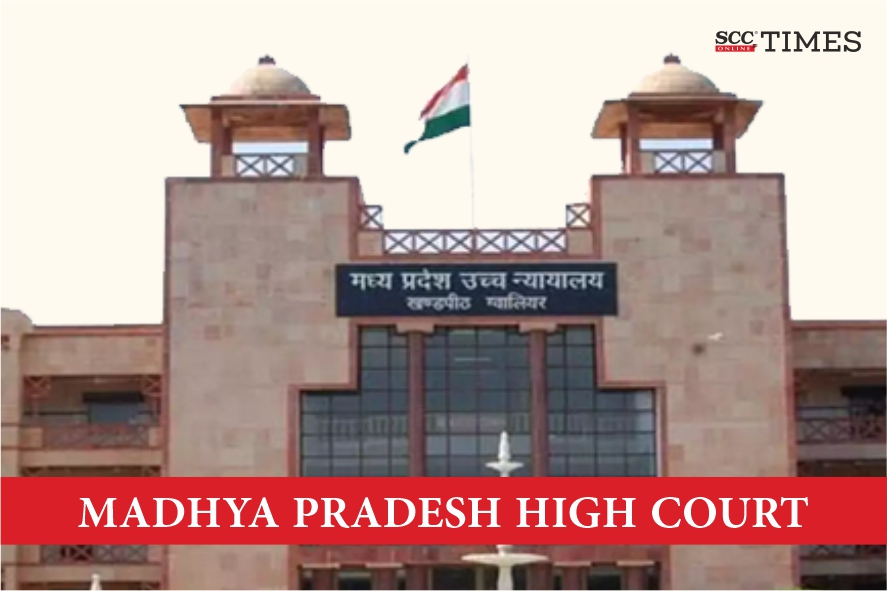Madhya Pradesh High Court: In Criminal Revisions filed by both husband and wife regarding reduction of the maintenance amount and enhancement of the maintenance amount, respectively, a single-judge bench of Prem Narayan Singh, J., held that “well qualified spouses should not be left idle or to remain idle basing on their maintenance amount received from their husband” and reduced the maintenance amount was from ₹60,000 to ₹40,000 per month.
In the instant matter, the wife filed an application under Section 125 CrPC in the Family Court, Indore, seeking maintenance of ₹60,000 per month from her husband, who worked as Vice President at Citi Bank in Dubai, earning a monthly salary of 13,333 AED. She alleged physical and mental harassment by her husband, which led to her miscarriage in 2006 and ultimately forced her to reside with her parents. The Family Court, Indore, awarded interim maintenance of ₹60,000 per month to the wife. Both parties filed revision petitions, the wife seeking an enhancement, and the husband seeking a reduction of the maintenance amount.
The wife argued that the maintenance awarded was insufficient, given the husband’s high income of 35,364 AED per month. It was contended that the Family Court ignored certain aspects of the husband’s income, including savings on rent and additional rental income from properties in Pune and Mumbai.
However, the husband contended that he lost his job due to the wife’s false allegations and was now earning 12,555 Singapore dollars with high living expenses. Additionally, he has responsibilities towards his elderly parents. It was claimed that his wife voluntarily left without sufficient cause and was financially independent, earning ₹75,000 per month from her job in Dubai and additional income from her coaching centre and beauty parlor. He claimed the wife has sufficient income of her own and that the maintenance amount was excessive given his financial situation.
The Court noted that the trial court assessed the husband’s income from employment and rental properties, considering 50% of his foreign earnings as expended on living expenses. The Court considered the financial status of both parties and found that while the wife has a right to maintenance, the amount awarded by the Family Court was excessive given her qualifications and potential to earn.
The Court noted that the wife is well-educated, with a Master’s degree in Commerce and additional qualifications, enabling her to earn her livelihood. The Court emphasised that Section 125 CrPC does not intend to create dependency on maintenance but to ensure a reasonable standard of living. The Court stated that while the husband is obliged to support his wife, Section 125 CrPC should not encourage spouses to remain inactive, relying solely on maintenance.
“Neither a married woman is debarred from doing job, nor a married woman living separately and also obtaining maintenance from her husband is prevented to employ herself and to earn some income for her livelihood.”
The Court further referred to Jabsir Kaur Sehgal v. District Judge Dehradun, (1997) 7 SCC 7 and Kalyan Dey Chowdhary v. Rita Dey Chowdhary, (2017) 14 SCC 200, where the Supreme Court concluded that maintenance should allow the wife to maintain a reasonable standard of living but should not be excessive or encourage idleness.
The Court applied the precedent that a well-educated spouse should not be left idle or overly dependent on maintenance and dismissed the wife’s revision petition and partially allowed the husband’s revision petition and reduced the maintenance amount from ₹60,000 to ₹40,000 per month, considering that:
-
The wife was well-educated and capable of earning her livelihood.
-
The husband had substantial financial obligations, including caring for his elderly parents.
-
The maintenance should reflect a balance between the husband’s earning capacity and the wife’s ability to support herself.
[Shikha v. Avaneesh Mahodaya, 2024 SCC OnLine MP 5791, Decided on 10-09-2024]
Advocates who appeared in this case :
Shri Syed Asif Ali Warsi, Counsel for the Petitioner
Shri Rajat Raghuwanshi, Counsel for the Respondent







